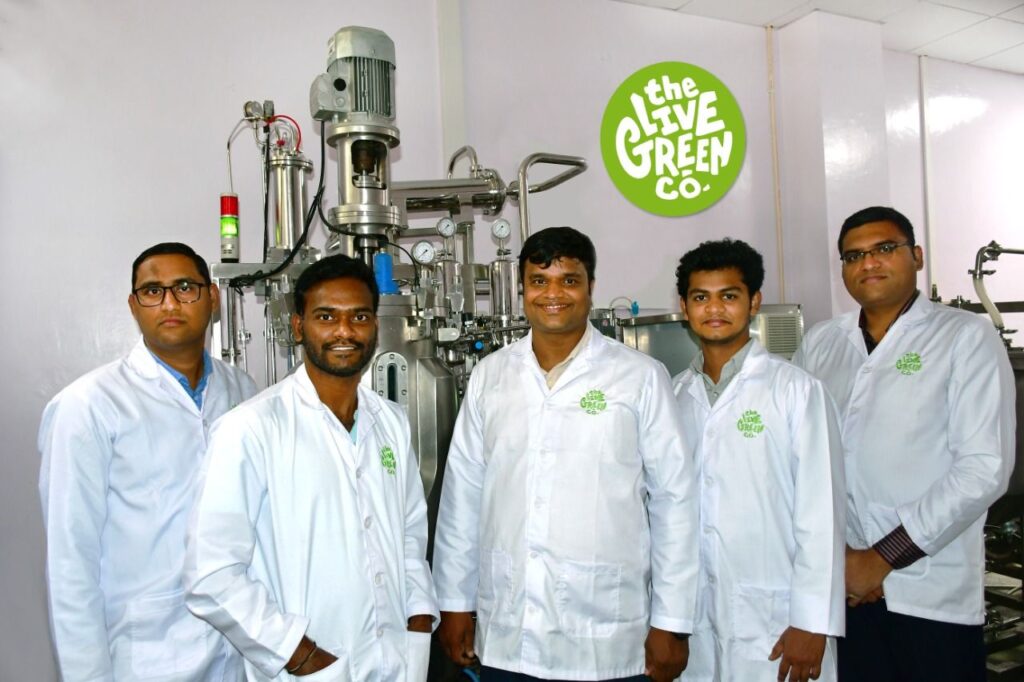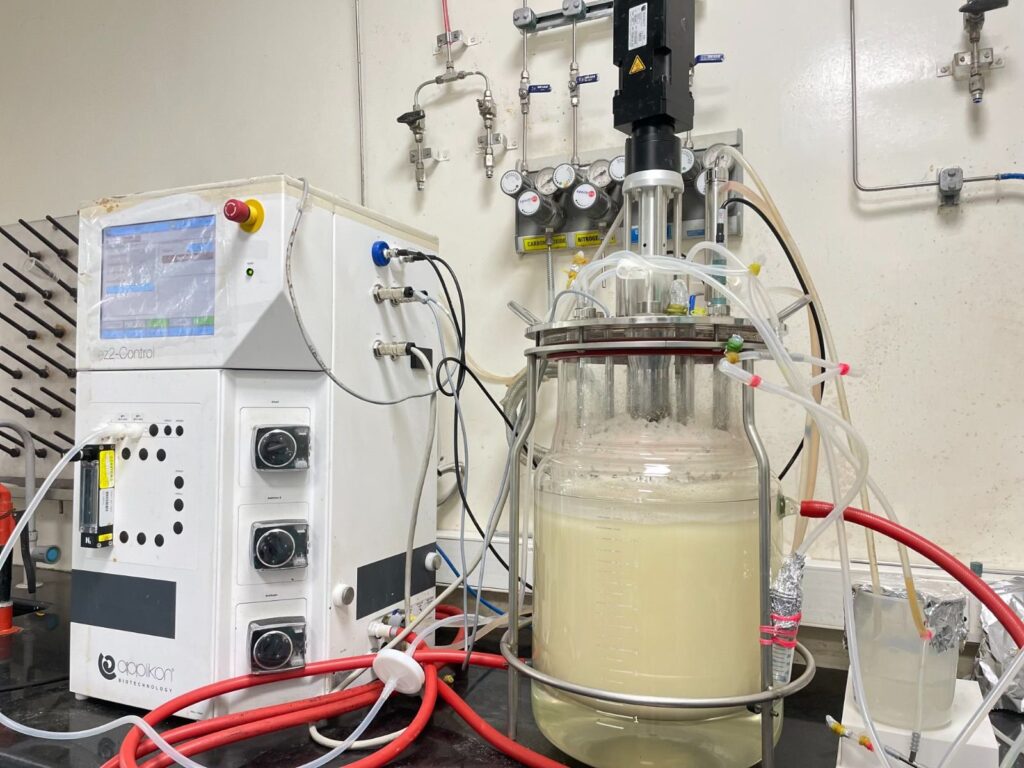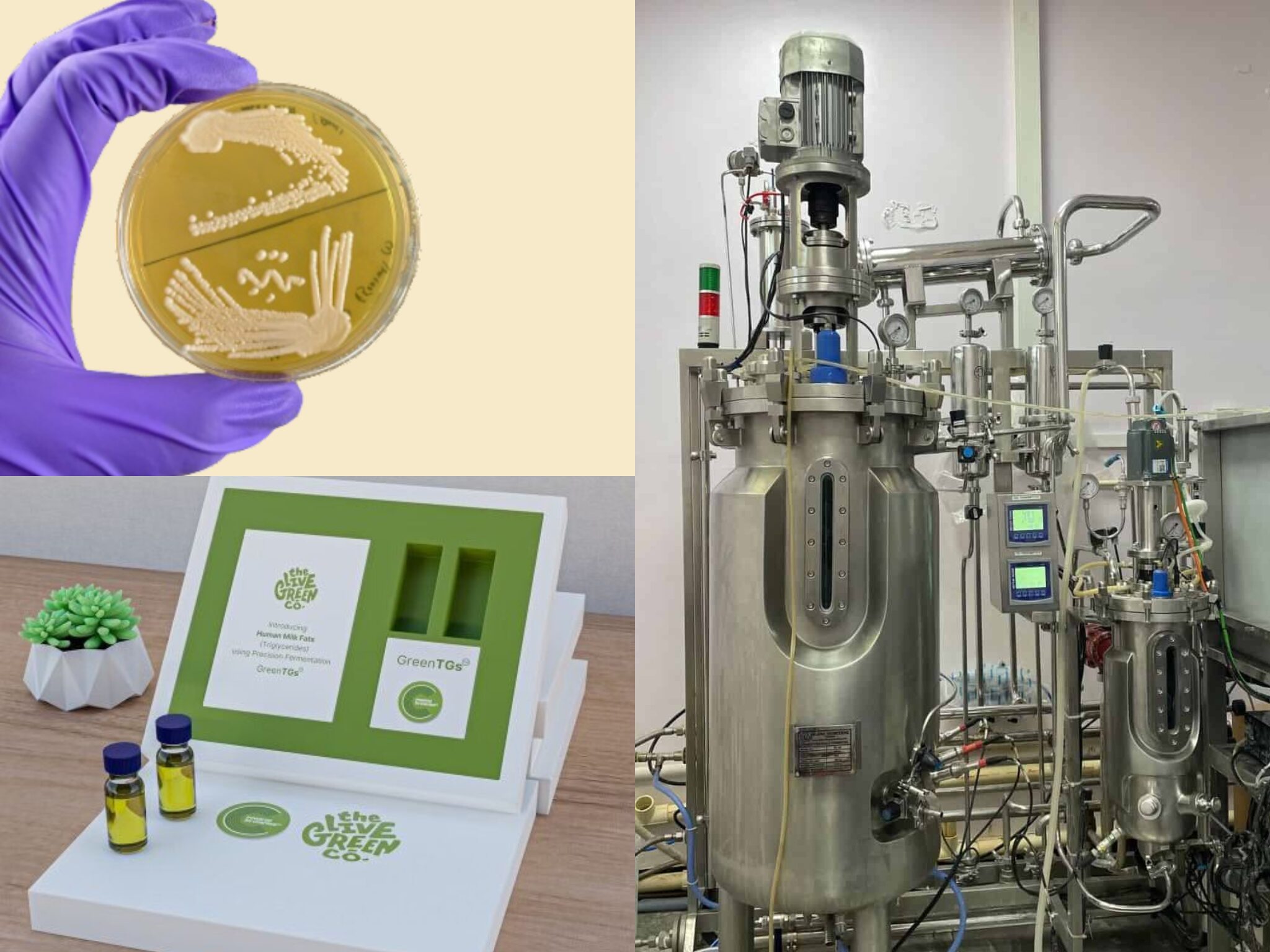The Live Green Co Announces Breast Milk Fat & Postbiotic Ingredient Made from Precison Fermentation
4 Mins Read
Boston-based AI food tech company The Live Green Co is tackling infant nutrition and gut health with a human breast milk fat and a postbiotic ingredient made from precision fermentation.
A year after announcing its precision fermentation division, Boston-headquartered startup The Live Green Co has unveiled the first two innovations born out of the department. GreenTAGs is a human breast milk lipid, while GutRevyv is a postbiotic ingredient for gut health.
The company has operations in the US, Chile (where it was founded), Singapore and India (the site of its precision fermentation R&D facilities), and leverages its proprietary AI and machine learning platform, Charaka. It’s a database of plant, protein, gene and microbial strains that enable it to discover plant- and yeast-derived alternatives to animal-sourced foods, artificial ingredients or ultra-processed foods.
Dubbed Active Functional Ingredients (AFIs), the startup describes them as clean, sustainable innovations essential for overall wellbeing, and sells or licences them to ingredient, food and healthcare companies. It notes that there are 10 million natural compounds and 450,000 plant species, but scientists have only explored a tiny fraction of these, which is why it’s using AI to discover new ingredients that tackle the wildlife decline, biodiversity loss, and high carbon footprints linked to conventional food ingredients.
Having raised over $9M in funding (including a $7M pre-Series A), the startup is now looking to commercialise these AFIs across various categories through partnerships. “We are pleased to announce the successful development of a co-fermentation process and the isolation of key compounds at a 100L scale using our proprietary strains,” said Kavish Kumar Jain, The Live Green Co’s director of precision fermentation. “Our process demonstrates a high level of standardization, repeatability, ease of scalability and commercially viable yields in existing food fermentation facilities.”

A breast milk fat that ‘bridges the gap’
According to the startup, human milk fat supplies 40-50% of the energy needed for infant development, with additional benefits like nutrient absorption, neurodevelopment support, boosted immunity, gut health, and overall wellbeing. Triacylglycerols (TAGs) make up 98-99% of breast milk fats, and The Live Green Co is using precision fermentation to develop the main TAG, called OPO (Oleic-Palmitic-Oleic).
Its yeast-derived lipids mimic the unique composition of human milk fats, unlike traditional infant formula that relies on vegetable oils devoid of short- and medium-chain fatty acids. These options don’t typically contain optimal levels of OPO, and while some are being developed through enzymatic interesterification reactions for better nutrient value, this can be challenging and expensive to manufacture.
GreenTAGs ensures infants can receive the nutrients vital to their development, without the potential drawbacks of palm-oil-derived palmitic acid. The company argues that this bridges the gap between breastfed and formula-fed infants. “Our human milk fat innovation is a significant stride in infant nutrition,” said CEO Sasikanth Chemalamudi. “This innovative solution not only provides infants with essential nutrients that are crucial for their development, but also addresses the shortcomings of traditional formulas by mimicking the unique composition of human milk fat.”
“Our patentable engineering techniques related to GreenTAGs help increase the TAG molecules in the produced fats, increase the amount of fat by altering the genes that divert the flux of carbon towards the fat instead of other biomolecules in the cell, and prevent the degradation of the fats produced via the deletion of the responsible genes,” explained Kumar Jain. “So, we are able to address not only quality issues, but also issues related to scale and commercial viability.”
Other startups innovating with breast milk innovations include California’s Yali Bio and Checkerspot (both of which are developing OPO analogues using fermentation), Israel’s Wilk and New York-based Helaina (which are making lactoferrin proteins using cell cultivation and precision fermentation, respectively), and French innovator Nūmi, which is making cultivated breast milk with as many constituents as possible (including proteins).

Taking on the postbiotic world
The Live Green Co is also jumping on the gut health trend with its patent-pending GutRevyv ingredient. But while many companies in this space are working on prebiotics – such as Supergut, Olipop, Pendulum and Poppi – it is disrupting the world of postbiotics instead.
The company states that postbiotics are much safer than probiotics (which are live microbes), and their usage is also more standardized, precise and predictable. Plus, they’re faster in production tech, provide qualitative control, are simpler to transport, store and maintain, and have a longer shelf life.
This means postbiotics can be used in a diverse range of food applications with stability in high pH, heat and alcohol environments too – think energy bars, confectionery items, baked goods, beer, and even nutraceuticals and personal care products.
GutRevyv has developed its own postbiotic strains, which can be synthesised to produce more postbiotic metabolites (which influence every organ, are vital for gut wellness, and regulate overall health) than any other solution on the market. These include compounds like GABA, lactate and certain short-chain fatty acids, which can be produced in a single co-fermentation process that’s faster, simpler and unique.
“Our mission at Live Green is to leverage deep tech/science for the greater good. In light of the pandemic’s spotlight on health and immune systems, we’ve been rapidly evolving our scientific vision and deliverables,” said Chemalamudi. “Our latest postbiotics innovation underscores the critical role of the gut microbiome in supporting overall health.”




